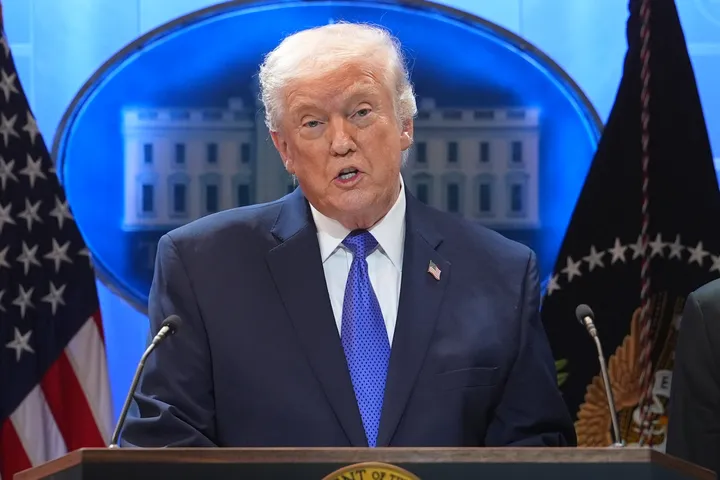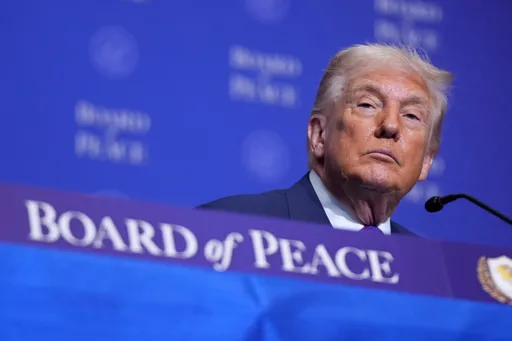As Israel’s looming annexation could result in greater humanitarian problems for Palestinians living under occupation, speculation has also grown over risks to Israel’s diplomatic standing. Yet Europe, succumbing to US and Israeli pressure, and its own divisions on the continent, may be left powerless in opposing Israel’s plans.
Europe has historic and political ties with Israel, ties which shape its policies today. They go back to the 1916 Sykes-Picot Agreement between Britain and France, which mapped out what we now call the Middle East. During London and Paris’ carving up of the region, Palestine was designated under the British Mandate during the 1920 San Samo conference based on the framework of Sykes-Picot - this violated the UK’s previous promise of the land to Sharif Hussein of Mecca.
Through the Balfour Declaration, the British Mandate of Palestine served the European Zionist Movement. This - in legal terms - directly contradicted the League of Nations’ Charter.
Within the concessions the British made in the 1939 White Paper, there was assurance that an independent Palestinian state would be established within 10 years. The UK, however, backtracked on this promise, too. In 1948, it withdrew from the territory after violent opposition from Zionist militias, handing the problem over to the United Nations. This left the door open for the Nakba (or ‘catastrophe’), where around two-thirds of Palestine’s population was expelled to make way for Israel’s creation that year.
For two decades, Palestine was treated as merely a humanitarian issue, involving refugees. However, the 1967 war, and the later foundation of the Palestine Liberation Organization, challenged this. The United Nations Security Council passed Resolution 242 in 1967, which later became the basis for the two-state solution - it received European endorsement. The PLO, however, pushed for a unified state for all citizens in the Holy Land. The PLO eventually let go of its ambition and accepted the two-state framework from the US-backed 1993 Oslo Accords.
Meanwhile, Europe moved away from its individualistic imperialist ambitions from the pre-World War II period, and instead publicly backed the upholding of international law. This left it trailing behind the USA, which took more of a leading foreign policy role. At least on the surface, Europe and America’s stance focused on supporting resolution 242, while avoiding having to threaten their relations with Israel.
Trump’s presidency, however, has shattered this harmony. The incumbent American president, who has been openly supportive of Benjamin Netanyahu’s right-wing agenda, announced that "things have changed" and hence we should "move on" and "deal with the reality the way it is".
Last January, Trump announced his so-called ‘peace’ plan with Netanyahu - this was without Palestinian consent. It, in effect, gives Israel the ‘green light’ to pursue annexation. The EU and the UK reacted with mixed signals. While Britain expressed indirect support for the deal, the EU took a more nuanced approach, saying that it “provides an occasion to re-launch the urgently needed efforts towards a negotiated and viable solution to the Israeli-Palestinian conflict.”
How Europe views the conflict
European divergences from America’s shift in policy did not come out of the blue. The factors that determine the European position towards the conflict seem to vary, and may either prove a hindrance or an aid in its achieving of sanctions.
Firstly, Europe is geographically adjacent to the Middle East, and the region's dynamics impact its member states and thus, its policy. Its desire to contain Syrian refugees fleeing the country’s war demonstrates this perfectly. Additionally, Israel is an important arms client and strategic regional partner for many European states, while the EU and Israel also have extensive trade relations.
Finally, Europe and particularly the UK and Germany, feel that they have historic and moral sentiment towards Israel: the British, of course, played a large part in establishing the country, while Germany’s role in the Holocaust may sway policies. Moreover, Israeli society may be diverse and made up of various nationalities, including the Middle East and North Africa, yet the European origins within the Zionist movement, influence the state’s Western-centric identity - that was, at least, until Netanyahu stepped in.
“European and Israeli relations are based on several mutual interests and considerations, most importantly a historical one; related to the outcome of WWII and the holocaust” Mansour Abbas, Deputy Speaker of Israeli Knesset from the Joint Arab List, told TRT World.
Yet, with Israel eyeing up annexation, this drastic policy ambition leaves open the question over how Europe will revise its traditionally relaxed stance, especially as sanctions are widely supported among some governments on the continent.
On the surface, the EU’s mood towards Israel has transformed over the prospect of annexation. It is a result of it directly going against past policies. The three major European states, the UK, France and Germany, have called for a two-state solution, yet have not taken the necessary step of recognising Palestine.
There is an undeniable lack of coherence within Europe. The UK has repeatedly criticised Israeli settlements as a breach of international law, and also says that it opposes Israel’s annexation plans. It has never taken any action to support a two-state solution, however, which is similar to the inactivity of both the European Union and the United States - despite taking mediating roles, they have often taken Israel’s side against the PLO.
The former Labour Party leader, Jeremy Corbyn, is considered to have changed the debate on Israel and Palestine in Britain, after he pledged to recognise Palestine as a state in his manifesto before his defeat in the UK General Election last December.
In May, around 130 British members of Parliament signed a letter calling for Prime Minister Boris Johnson to impose sanctions on Israel, should it proceed with annexation. This was an unprecedented move, given that sanctions had not yet been widely proposed.
Johnson has demonstrated his committed friendship with Israel, and along with pressure from the US, the current UK government would be seemingly limited in its actions over the annexation situation.
Highlighting that the UK’s response would likely be lacklustre, Chris Doyle, Director of Council for Arab-British Understanding (CAABU), told TRT World, “Britain’s preferred scenario would be to see annexation cancelled or delayed. If a small Israel annexation proceeds, a standard declaratory condemnation will follow but no action.”
“The real question is what happens if Netanyahu pushes forward with a sizable annexation, backed inevitably by the Trump administration. Until February, British Ministers said such an annexation could not go unchallenged,” added Doyle.
Meanwhile, Luisa Morgantini, former vice-president of the European Parliament and a leading member of the Italian Peace Movement, believes that Brexit has further weakened the EU’s foreign policy clout, undermining its decision making. Brexit seems to have pushed Britain further towards Israel.
France has led the EU’s calls - along with other states like Ireland, Belgium and Luxembourg - for punitive measures on Israel should it proceed with its land grab of the West Bank.
Meanwhile, EU foreign policy chief, Josep Borrell, said on 19 May that the bloc would not recognise Israel’s annexation.
“When these things like annexation are announced officially, they make a lot of noise, impose temporary sanctions if any at all, but then everything comes back to ‘normal’,” Ilan Pappe, Israeli historian and Professor at the University of Exeter, told TRT World.
While there is growing opposition, the right-wing also boosts Israel. As well as the far-right, governments in Eastern and Central Europe, like Victor Orban’s Hungary, populist and anti-Islam parties within Germany AfD and Italy’s North League, have all pledged to recognise Jerusalem as Israel’s capital.
Israel’s courting of such European actors also seeks to thwart any opposition towards it, including Austria, Hungary and Czech Republic, which help Israel build a consensus of friendly voices within the EU. And with the UK seeking greater trade ties with traditional allies like Israel in a post-EU future, it could prove limiting for Johnson’s pro-Brexit government’s willingness to challenge Israel’s policies.
The EU may take minor measures, like excluding Israel from research and innovation framework Horizon Europe, due to be held between 2021 and 2027. That said, there are an increasing number of voices like that of Morgantini, who argues that Israel’s overall opposition will be limited.
“Israel has occupied Palestinian land for over 50 years and Europe has barely mustered more than a few terse statements in opposition,” Antony Loewenstein, an independent journalist and filmmaker based in Jerusalem, told TRT World.
Regarding opposition in Europe, he added “in many European countries, including France and Germany, BDS is illegal so the options are limited, though activists should keep challenging these absurd laws.”
The most likely scenario
Europe now has three options for its approach to Israel’s annexation: uphold the two-state narrative, support the prospect of a bi-lateral one-state solution, or passively accept the apartheid regime as legitimate.
The EU funds various Palestinian aid and state-building initiatives, showing it should engage with Palestinians in the event of an annexation.
Yet given Europe’s divisions, and the US and the far-right empowering Israel, it will likely sit back helplessly and be a mere spectator in whatever Israel eventually chooses to do.
“Any annexation large or small must be fully challenged. Israel should know, now that Britain and EU states will not allow business to proceed as usual, just as the EU took swift action against Russia for the annexation of the Crimea,” said Doyle.
“It should stand up for the rules-based international system or else states the world over will start pursuing their ambitions through force of arms not force of law.”
Pro-Palestine activists and academics like Pappe have often argued that, with Israel’s de-facto control over the West Bank, the focus should be on pushing for a one-state solution where Israelis and Palestinians have equal rights under the same state. This debate will become more relevant in the near-future, especially if Israel goes ahead with annexation.
“There is the question of what it should do. The only way it can play a constructive role is to treat Israel as it did at the time approach the situation in apartheid south Africa,” said Pappe.
Loewenstein adds, “there’s too many vested interests in keeping the EU’s two-state delusion alive, from think-tanks to politicians to journalists.
“In time though, a one-state campaign, with full rights for all, will grow power in Israel, Palestine and the rest of the world”.
Therefore, as Mansour Abbas agrees, unless a strong popular movement emerges and pushes for tougher action, there can be no obvious effective role for Europe in the near future. This, of course, may one day all be turned on its head.























